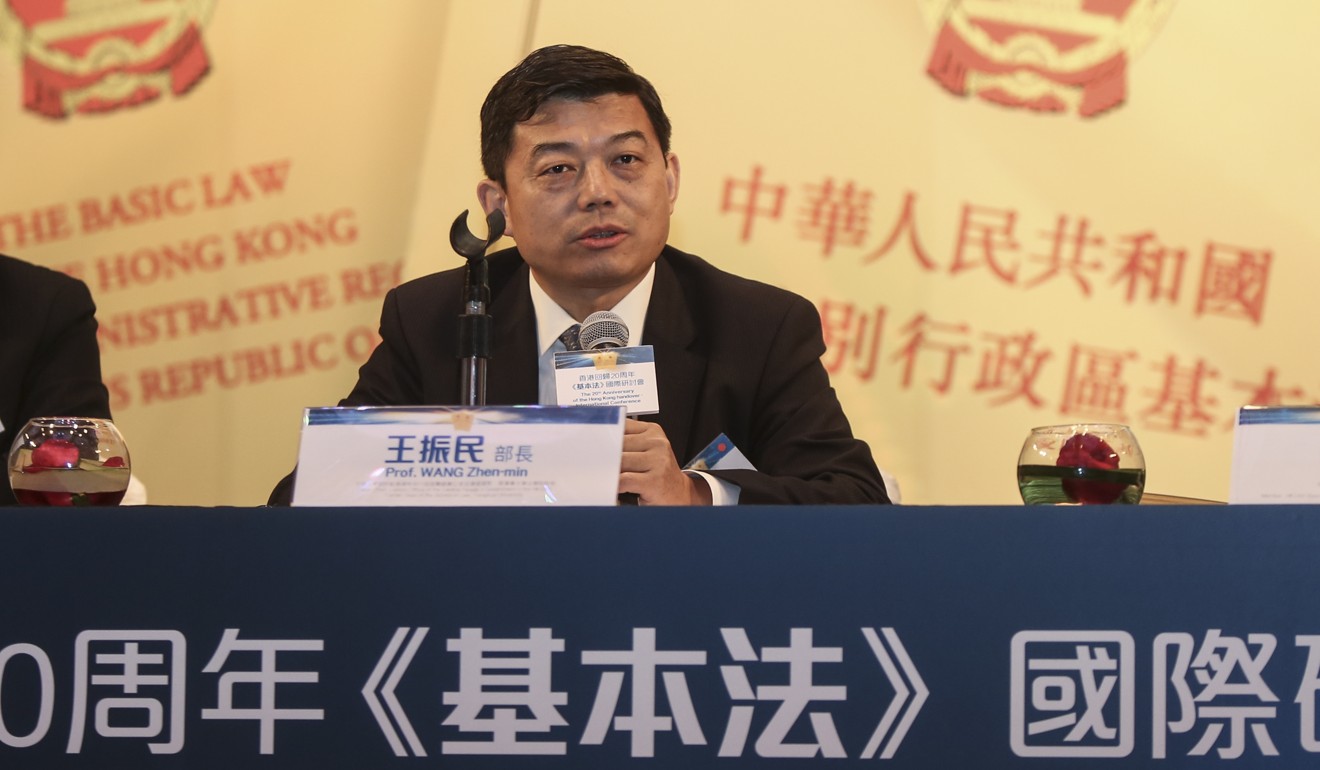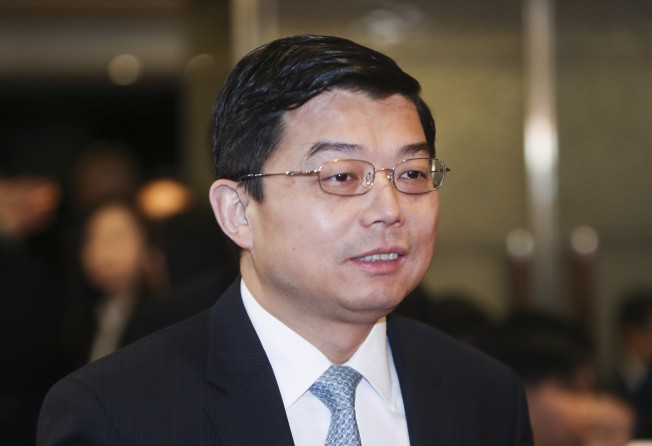
Chinese constitution should apply in Hong Kong and Basic Law is only a supplement, Beijing legal scholar Wang Zhenmin argues
- Tsinghua University professor says Basic Law ensures the constitution is still applicable in Hong Kong ‘as a whole’
- Wang was appointed legal chief of Beijing’s liaison office in city in 2016

A Beijing legal scholar has argued that the Chinese constitution should apply in Hong Kong while the Basic Law, the city’s mini-constitution, was only a supplement and an adaptation of the national one.
Tsinghua University law professor Wang Zhenmin made the argument in an article in the latest issue of Bauhinia magazine published on Thursday, as a special contribution to mark China’s National Constitution Day next Tuesday.
Pro-establishment politicians in Hong Kong endorsed Wang’s arguments but opposition pan-democrats warned it could give people the impression that Beijing was trying to diminish the role of the Basic Law.

Appointed the legal chief of Beijing’s liaison office in Hong Kong in 2016, Wang, 52, was expected to return to Tsinghua this month. The liaison office has not announced any change regarding his post but the article was not published in his official capacity.
Wang drew fire in July when he told a Basic Law forum that the Chinese constitution should be “fully applicable” across Hong Kong as there was a new constitutional order after the city returned from British to Chinese rule in 1997.
Critics questioned the plausibility of the argument, as the constitution maps out mainland China’s socialist system, which is not practised in Hong Kong under the “one country, two systems” principle.
In his latest essay, Wang argued that while the socialist provisions in the national constitution could not be directly enforced in the city, the Basic Law ensured the constitution was still applicable in Hong Kong “as a whole”.
“Through the Basic Law, the socialist ideologies and systems in the constitution are amended and supplemented. The Basic Law made special rules for the socialist provisions in the constitution,” he wrote.
Citing examples, Wang argued the Basic Law provision on Hong Kong’s status as a special administrative region of China was itself a supplement to the constitutional provisions on regional administration.
The making of the Basic Law was to modify and supplement parts in the national constitution that do not accord with the principle of one country, two systems and the realities in Hong Kong
Wang also said the constitution included provisions about the president, the National People’s Congress and the military, and they applied to Hong Kong as the Basic Law made no mention of them.
“The making of the Basic Law was to modify and supplement parts in the national constitution that do not accord with the principle of one country, two systems and the realities in Hong Kong,” he wrote.
“It was definitely wrong for some people to suggest that only Article 31 of the constitution is applicable to Hong Kong,” Wang wrote, referring to the part stipulating that Beijing “may establish special administrative regions when necessary”.
Legislator Priscilla Leung Mei-fun, who is also a member of the Basic Law Committee under the national legislature, agreed that all provisions in the constitution should be applicable to Hong Kong.
“But not all of them can be enforced in the city because they might be inconsistent with the one country, two systems principle,” she pointed out.
But Civic Party lawmaker Alvin Yeung Ngok-kiu said Wang’s comments could be a “disservice” to both the city and the mainland amid the deepening US-China trade dispute.
“This is a moment when Hong Kong’s uniqueness in sharing a legal system different from that on the mainland should be remembered to preserve its status as a separate customs territory in the World Trade Organisation,” Yeung said.